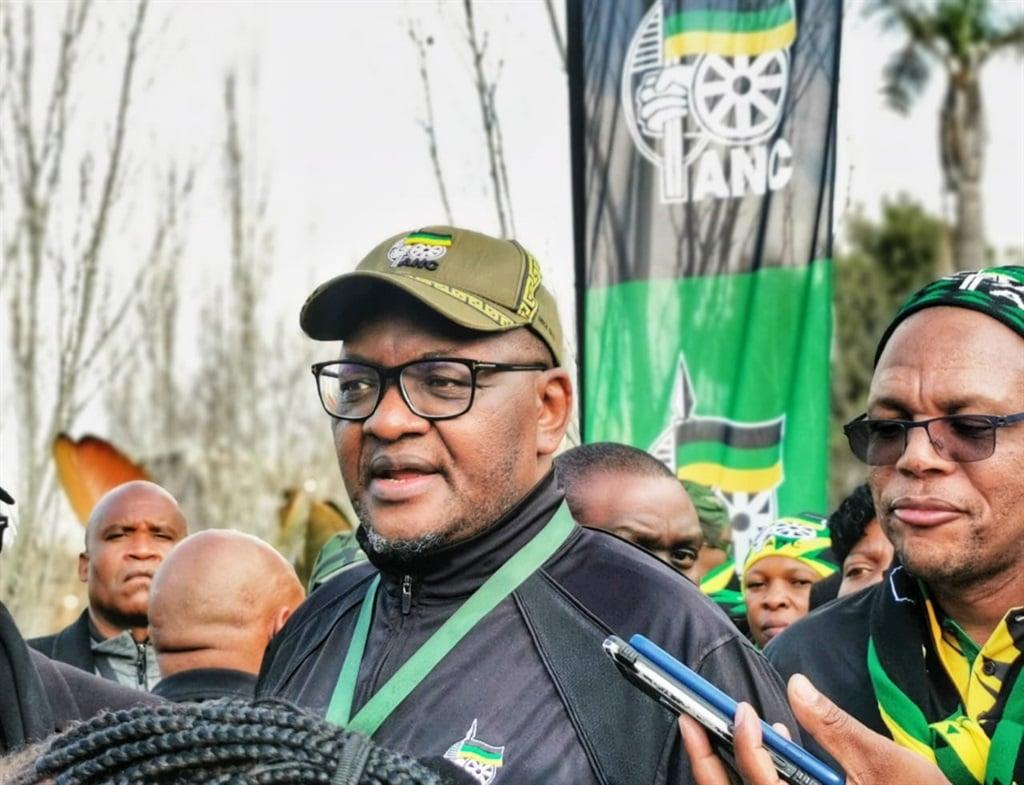Africa-Press – South-Africa. The time of underhanded coalition governments premised on partners gratifying each other to the detriment of citizens has reached its sell-by date, says the ANC as it outlined new rules of engagements regarding coalitions.
This was communicated by David Makhura when he delivered the ANC’s strategic framework on coalitions on Sunday afternoon.
Makhura said the party’s national executive committee (NEC) would adopt the policy framework he presented.
According to his presentation, the ANC resolved not to rule out going into partnership with any party but to prioritise winning elections outright instead of already having coalitions in mind as a fallback plan.
“The starting point should be working to win the elections; we are not resigned to coalitions.
“When we deal with coalitions we must have a national approach and engage uniformly. We must also agree that we don’t tamper with the administration work in municipalities.
“We can’t, as coalition partners, agree on removing and putting certain people in an administration and destabilising these administrations, so that’s also an important consideration in who we will get into coalition with,” said Makhura.
He added:
“Coalitions discussing tenders, coalitions discussing removing a municipal manager or appointing certain officials in those processes.
“We want to be part of coalitions that observe the rule of law and respect procedures of how officials are elected,” said Makhura.
He was quick to add he was not referring to Gauteng coalitions which have proved to be the most unstable.
Makhura said there was no evidence of collusion between his party and other smaller parties, and any one with such evidence should take it to law enforcement officials.
He also revealed part of the consideration by the ANC was to possibly introduce the collective executive system across the 80 hung councils in the country.
The collective executive system, as stated in Section 12 of the Municipal Structures Act, allows for the scrapping of the mayoral executive system and takes powers away from a mayor and allows a new committee to run proceedings.
“Among key challenges we’re facing in the country is that we have unstable and dysfunctional coalitions impacting hugely on service delivery in municipalities,” he said.
“We’ve seen much more stability in municipalities run by the collective executive system over the mayoral system. This means parties will be represented proportionally according to the seats they got in council.
“We only have trouble where [there’s] a mayoral executive system. We’re thinking of introducing an executive system in all hung councils,” added Makhura.
Feeling the heat as the official opposition, the DA, rounds up smaller parties in an ambitious proposal of a “moonshot pact” to defeat the ANC and keep the EFF out of governance, the ANC NEC has also instructed Cyril Ramaphosa to convene the party’s own dialogue on coalitions.
“There are many parties and groups that have proposals on how to strengthen coalitions, not just the DA.
“The NEC is actually directing that the president should convene a dialogue with the different players, not only parties.
“One of the most serious mistakes that we can’t make is thinking that local coalitions are an issue of political parties alone.
“Civil society groups must be involved; academics who have been very much involved should also be involved and have a say.
“One of the decisions that are being considered is that there must have a dialogue on how to manage coalitions in the interests of the people, how to formulate policies so that the coalitions can really have results,” said Makhura.
The ANC is also set to approve a policy that says where there are coalition governments, the party with the most significant votes should have the initiative to formulate the coalitions.
For More News And Analysis About South-Africa Follow Africa-Press






